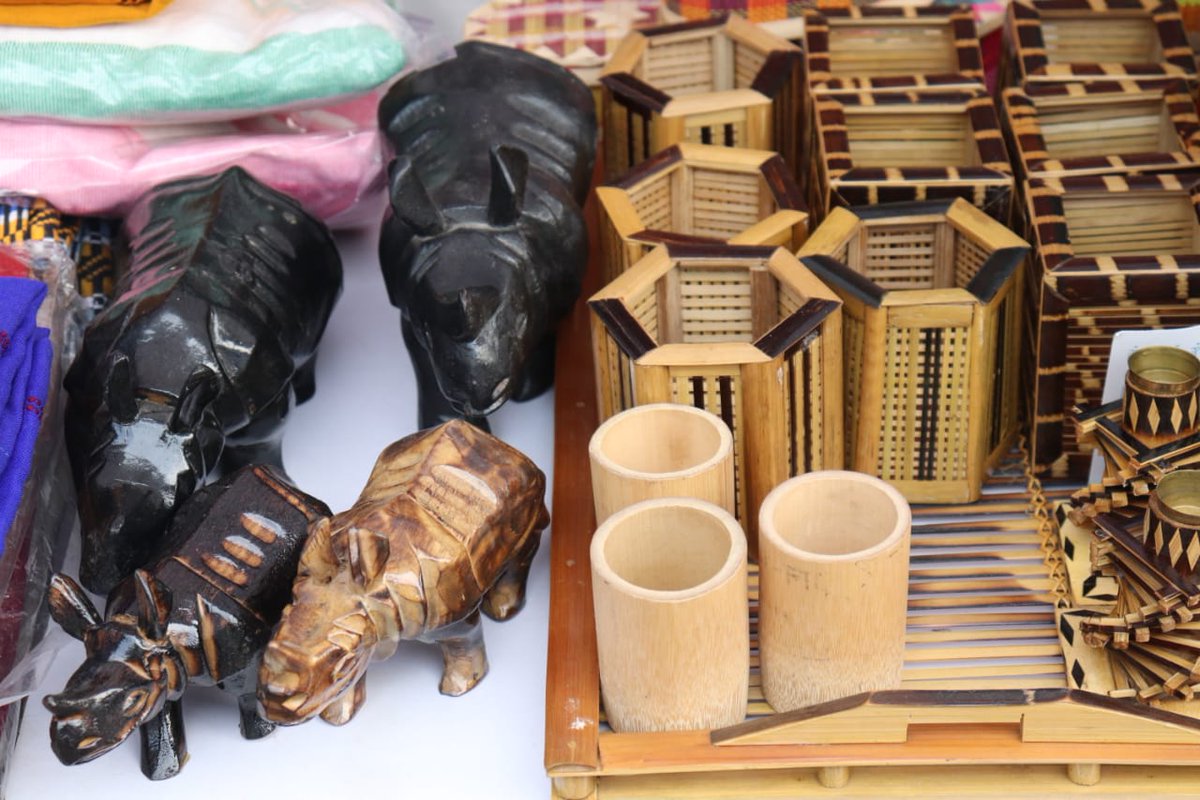
Exports from region are mere 5% of national handicraft exports, not rising even with a depreciating rupee:
Guwahati: Indian connoisseurs usually swoon over handicrafts from the north-eastern states, whether it’s fine muga silk from Assam, hand-woven shawls from Nagaland or delicate cane artifacts from Tripura.

Domestic demand aside, but north-eastern states are yet to fully capitalise potential for exports coupled with the positive prospect of a falling rupee. With the rupee crossing over Rs 82 to a dollar, Indian handicrafts are said to be doing pretty well but not the Northeast.
Bhaskar Baruah, project officer at the Export Promotion Council for Handicrafts talked about efforts being made to make the people and the region export-ready. But unlike West Bengal or Odisha where artisans are fully employed in handicrafts, in the Northeast handicrafts tend to be a secondary occupation mostly done on the side by the region’s men and women, says Baruah.
“Handicraft exports from the Northeast is below 5% of the national export of handicrafts according to data available,” said Baruah.
Handicrafts are the mainstay of rural artisans in the region and are difficult to be made into individual exporters. Efforts are on for their association with entrepreneurs with help from the Export Promotion Council for Handicrafts.
“Yes, there is a large scale sale in India and in the near future we plan to open an outlet for handicraft products in Mumbai and Chennai under the scheme of Sankalp Patra,” said director of the Tripura Handlooms and Handicrafts Development Corporation Limited (THHDCL), Tarun Debbarma. “But there is no export from Tripura,” Debbarma, who is also the Director of the handicrafts department of the state government, told Business North East.
The only consolation for Tripura’s artisans is that foreigners are buying handicraft products from the Tripura handicrafts outlet in New Delhi. Tripura government also has an outlet in Guwahati and four outlets in Kolkata.
In neighbouring Barak valley of Assam, cane products are being prepared for exports but the excitement of rising exports is missing.
Silchar-based cane handicraft exporter Santanu Poddar dispatches cane baskets, jewellery boxes and trays to the US, Europe and the Middle East as per demand. In 2022-23 fiscal his turnover was Rs95 lakh but the turnover has remained more or less stagnant this year, said Poddar.
“With fall in the rupee, income has increased but not much as buyers need products cheaper,” said Poddar. “In fact, we are losing business because exporters cannot deliver on time.”
An environment for bulk production is simply absent and although there are projects and clusters designed in the region, they are not helpful, said Poddar. If Poddar has not been able to make the cut after over 20 years – he started off in the year 2000 – something is amiss.
“People come from Delhi to export from the northeast so the foreign exchange is not coming to Assam,” observes Poddar.
There are others who have found ways to deal with some of the obstacles. Jasmina Zeliang has been honoured as a woman who’s done well as an exporter of cane and bamboo products from Nagaland. She exports products to the US, Australia, UK, France, Japan, South Africa, UAE, and several other European countries.
Zeliang’s idea is to use traditional techniques but offer contemporary designs. That seals the deals for her and a determination to deliver on time sustains her business.
In Manipur, businesswoman Keisham Babita Devi has been exporting the famed grass products but the recent violence in the state has adversely affected business. Manipur has been facing an ethnic conflict since May this year, and businesses like hers are suffering.
Whether grass and textiles or the black pottery of Ukhrul, there is a high demand for these products in France, Italy, Germany, USA, Japan and Malaysia.
The trouble is not just with market linkages, but also with supply chain management, according to Baruah. Unorganised as the sector is, there is sparse data for analysis and subsequent measures to improve the situation.
What’s needed is good ideas, say the few entrepreneurs. Probably, one should watch how Tripura unfolds its e-commerce idea.“The Handicraft Department of Tripura is planning to tie up with Amazon soon for exporting things,” said Debbarma.